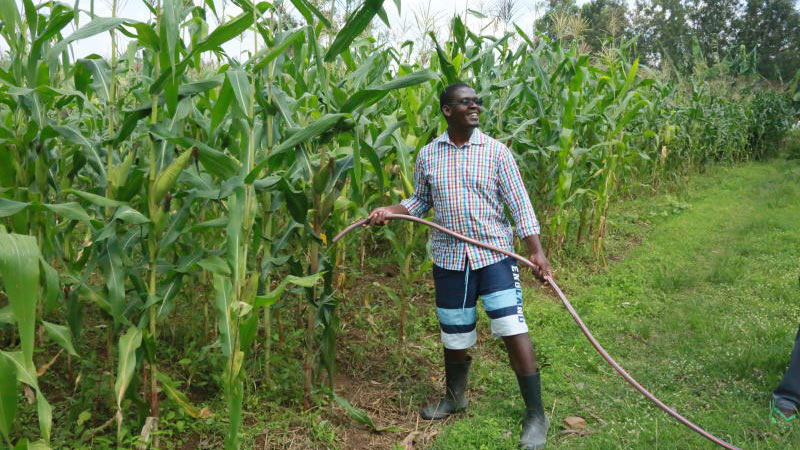×
The Standard e-Paper
Stay Informed, Even Offline

Two years ago, Jared Ateya, a farmer in Mumias contemplated quitting farming due to poor rains that almost turned his once productive land barren.
Ateya didn’t only struggle to feed his family as farming was his first source of income, but he risked his children being chased away from school as farming was no longer paying.